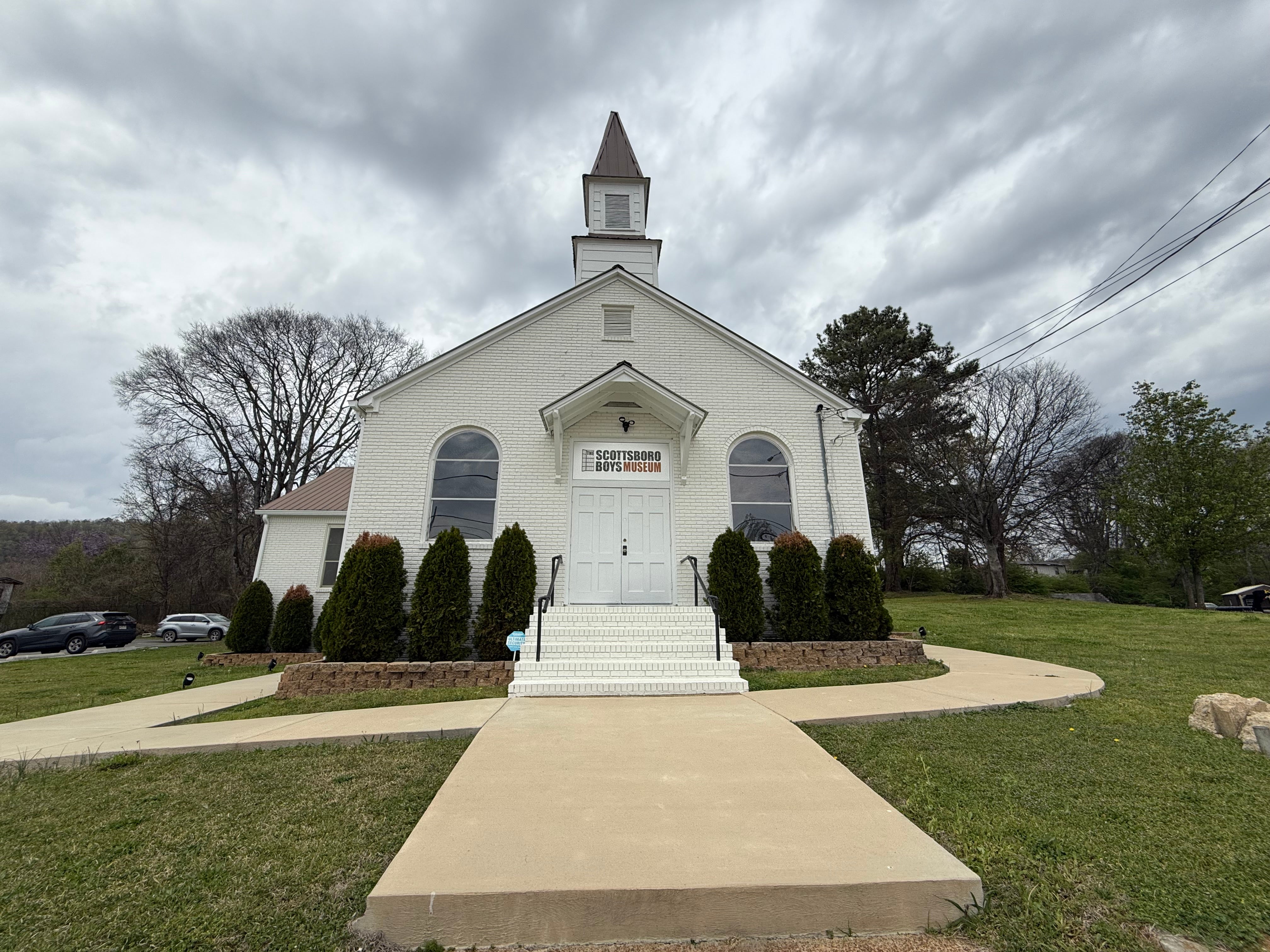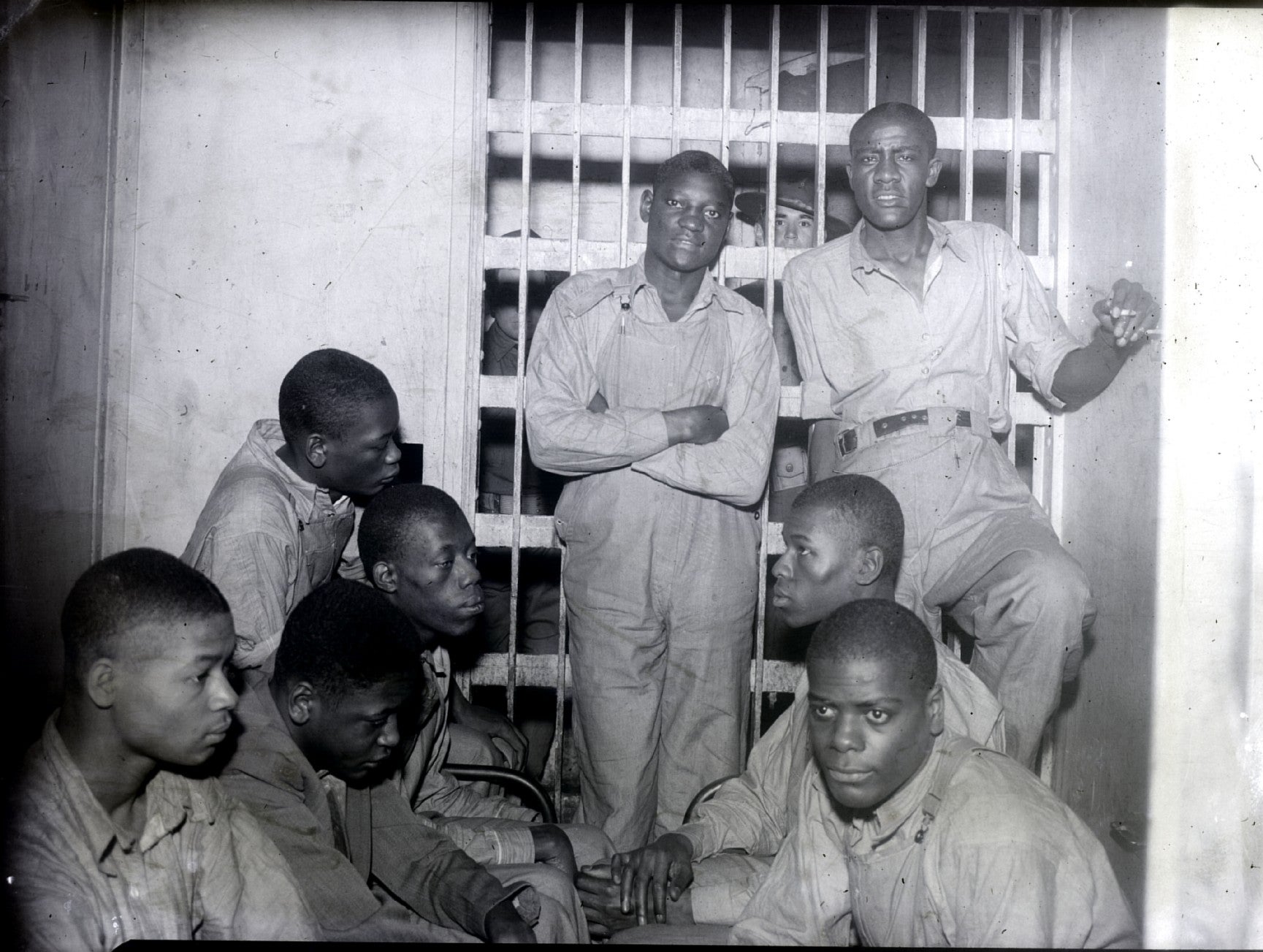The small city of Scottsboro in Northeastern Alabama is home to a store selling unclaimed luggage, a pretty park filled with geese, and a classic American diner serving some of the best grilled cheeses and soda floats in the South.
It was also the location of one of the most significant events in civil rights history – an event that directly impacted the Movement of the 1950s and 60s and had ramifications that are still felt in the United States today.
In 1931, nine African American young men and boys were travelling on a Southern Railroad freight train when they became involved in an altercation with a group of white men who were then thrown off the train. When the train pulled into the town of Paint Rock, the Black men were arrested for assault and taken to Scottsboro, Jackson County, where they were jailed.

The situation escalated when Victoria Price and Ruby Bates, two white women from Huntsville who were riding the same train and were facing charges of vagrancy and illegal sexual activity, falsely accused the nine African American men and boys of rape.
That night a mob gathered at the steps of the jailhouse in Scottsboro baying for blood and threatening to lynch the men. It was only after Sheriff Matt Wann stood in front of the crowd and insisted he would kill the first person to come through the door that they backed off.
The “Scottsboro Boys”, the youngest of whom was just 13, were tried by the State of Alabama in a series of four trials at the Jackson County Courthouse between April 6 and April 9, resulting in nine convictions and eight death sentences – for a crime that never happened.

This was a time when Jim Crow laws were deeply entrenched in the South; when African Americans were relegated to the status of second class citizens, and segregation was both legally and socially enforced. Jackson County was severely impoverished, and many Black residents had moved to the more industrialised cities to seek employment, while those who stayed faced discrimination and disenfranchisement.
Following the trial, protests erupted in the north of the…
Click Here to Read the Full Original Article at The Independent Travel…
